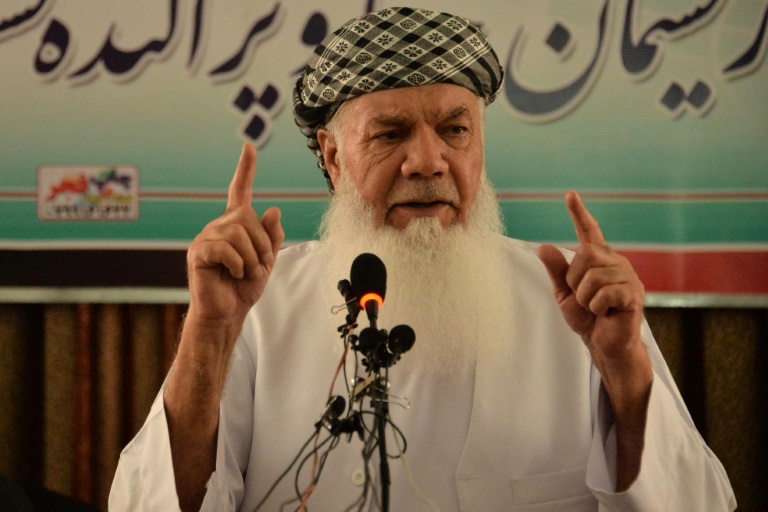A veteran Afghan warlord whose militia helped US forces topple the Taliban in 2001 vowed Friday to again take up arms as the insurgents closed in on his Herat stronghold in the west.
“We will soon go to the frontlines and with the help of God change the situation,” said Ismail Khan, once a leading member of an alliance of guerrilla fighters who battled the Taliban during the US invasion after the September 11 attacks.
Khan’s comments came as the Taliban claimed they now control around 85 percent of Afghanistan — including key border crossings with Iran, Tajikistan and Turkmenistan.
There is no way to independently verify their claim, which the government disputes.
Khan hails from Herat city, about 100 kilometres (60 miles) from Islam Qala, the main border crossing with Iran that was under Taliban control Friday.
The insurgents have captured an arc of territory stretching from the Iranian border to the frontier with China since launching a sweeping offensive in early May as US troops began their final withdrawal.
Khan, 75, blamed the government for the rapidly deteriorating situation and urged the military to show more backbone.
“A lack of attention, incorrect information and many other reasons have led to the fall of the districts,” Khan said.
“We demand all the remaining security forces resist with courage.”
Khan told a news conference that hundreds of civilians from across the country had approached him saying they were ready to fight the Taliban.
In recent days, social media networks have been flooded with photographs and videos of prominent Afghans, including lawmakers, taking up arms along with their supporters to fight the insurgents.
Some videos that cannot be verified have shown hundreds of women, also with weapons, vowing to fight.
“We hope that men and women of Herat decide at this moment to support the resistance front to defend their freedom and safeguard their honour,” Khan said.
Khan’s vast militia had a series of successes against the Taliban when the hardline Islamic group first came to power, but was forced to flee to Iran with thousands of his men in 1995 after an ally defected to the insurgents.
He was captured by the Taliban in 1997 when he returned to organise an uprising, but escaped from prison in Kandahar two years later and was at large until the US invasion in 2001.
Khan was a minister in former president Hamid Karzai’s government, but is known to prefer ruling the roost in Herat, where critics accuse him of running the province like a personal fiefdom.










